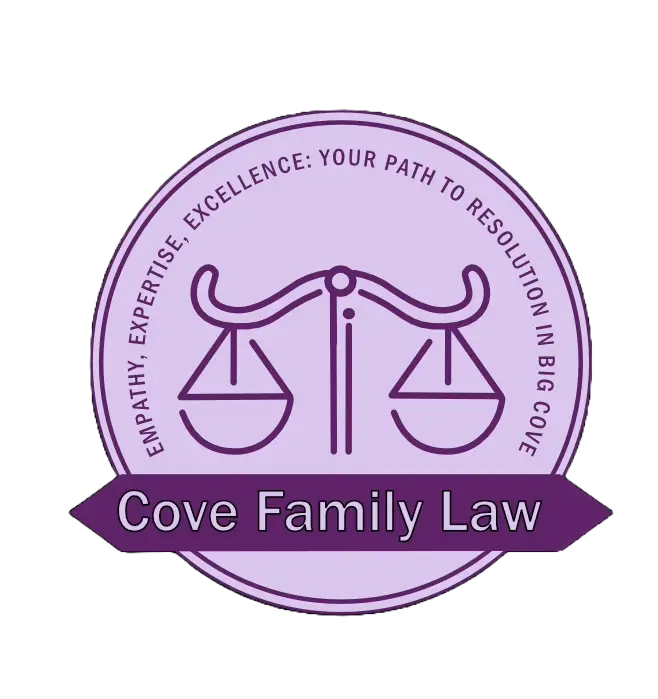We’re tackling a significant decision many couples face during difficult times: whether to opt for a legal separation or move forward with a divorce. At Cove Family Law, we understand that each family’s situation is unique and our goal is to help you make an informed decision that aligns with your specific circumstances.
What Is a Legal Separation?
Before diving into the pros and cons, let’s clarify what a legal separation entails. A legal separation is a formal arrangement where a couple remains legally married but lives apart and follows a court-approved agreement that outlines the terms of their separation. This agreement typically addresses issues like property division, spousal support, and child custody.
When Is Legal Separation Beneficial?
-
Religious or Personal Beliefs: For some, divorce is not an option due to religious or personal convictions. A legal separation allows you to live apart and manage financial and custodial responsibilities without completely terminating your marriage.
-
Health Insurance Considerations: If one spouse relies on the other’s health insurance, a legal separation can maintain this coverage while you live separately. This can be crucial if you don’t have alternative insurance options or want to maintain the benefits of a spouse’s military service or other specific benefits.
-
Financial Considerations: In certain situations, separating legally rather than divorcing can offer financial benefits. For example, it might be easier to qualify for certain financial aids or benefits while still legally married.
-
Trial Separation: Some couples use legal separation as a trial run to determine whether they can resolve their issues or if divorce is the more suitable path.
The Downfalls and Risks of Legal Separation
While there are instances where legal separation can be beneficial, it’s essential to be aware of its potential drawbacks:
-
Legal Status Remains Intact: Unlike divorce, legal separation does not end the marriage. This means you can’t remarry unless you go through the divorce process. This might not be ideal if you or your spouse are considering new relationships.
-
Complicated Financial Dynamics: Although you’re living apart, you remain legally married, which means that you’re still financially tied to each other. This can complicate financial matters, such as tax returns and credit obligations, and your financial obligation to your spouse as far as alimony or property division continues to accrue over time.
-
Potential for Prolonged Conflict: Legal separation can sometimes prolong marital conflict. Since the marriage remains intact, unresolved issues might continue to cause friction, impacting both your well-being and that of any children involved. Often the half-measure of a separation that is not a divorce allows the problems to simmer, rather than resolve.
-
Legal and Administrative Costs: The process of legal separation can incur significant legal fees and administrative costs. Additionally, if you later decide to divorce, you’ll face additional costs and legal procedures to dissolve the marriage completely. A legal separation does almost all of the same things and requires many of the same considerations and work as a divorce, only to require you to start over if you do pursue a divorce later.
-
Impact on Children: While legal separation can address custody and support issues, the ongoing marital status might confuse or affect children differently than a clear divorce. It’s crucial to consider how this arrangement will impact your family dynamics.
Making the Decision
Deciding between legal separation and divorce is a deeply personal choice and one that should be made with careful consideration and professional guidance. At Cove Family Law, we are dedicated to helping you navigate this challenging decision by evaluating your unique situation and advising on the best course of action.
If you’re contemplating a legal separation or divorce, we encourage you to reach out to our office for a consultation and let us help you find the solution that’s right for you and your family.
Cove Family Law: Your Trusted Partner in Family Legal Matters


